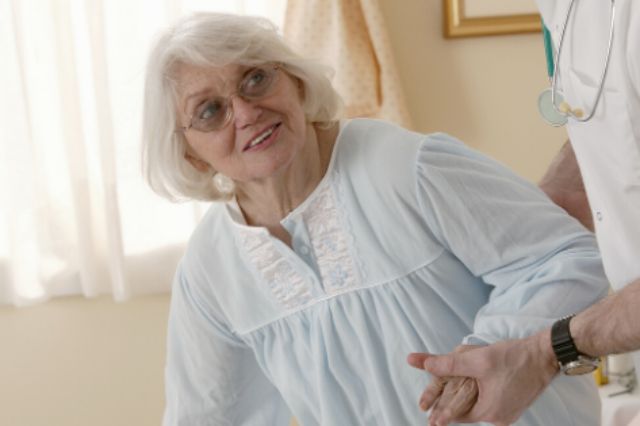
An Overview of the Federal and State Nursing Home Abuse Laws: A Guide for Vermont and New Hampshire Residents






Understanding Federal and State Laws on Nursing Home Abuse
Contact UsNursing home abuse is a troubling issue that affects countless elderly residents across the United States, sometimes hidden in places meant to ensure their safety and well-being. This subject draws attention not only because of its severity but also due to the complex web of federal and state laws designed to protect residents of nursing homes and assisted living facilities. The regulations governing these facilities aim to shield inhabitants from abuse, neglect, and exploitation, yet the challenge persists.
Understanding the legal framework surrounding these protections is crucial for both residents and their families. The federal and state statutes vary, offering different levels of safeguard against physical and financial exploitation. Such discrepancies can affect public health outcomes and highlight the essential role of policies during crises like the COVID-19 pandemic, which exacerbated vulnerabilities.
At Sabbeth Law, PLLC, we’re positioned to guide families in Vermont and New Hampshire in navigating these legal landscapes. Our commitment extends to ensuring that victims and their families are not only aware of their rights but are also supported in seeking justice. As we delve into this issue, you will be equipped with knowledge and tools to advocate effectively for your loved ones.

Understanding Nursing Home Abuse
Nursing home abuse is a grave issue affecting countless older adults in long-term care facilities. These residents, often vulnerable due to age or health, depend on these institutions for safety and care. Unfortunately, they can face various types of abuse, such as physical, emotional, sexual, and financial, as well as neglect and exploitation.
Physical abuse involves intentional harm like slapping or excessive restraint use. Emotional abuse may include verbal threats or isolation, causing psychological injury. Sexual abuse is any non-consensual sexual contact, which is wholly unacceptable in these environments. Moreover, residents can be targets of financial exploitation, where their funds are misused without consent.
Neglect is another critical issue, often leading to severe repercussions like physical injuries or emotional distress. This lack of proper care contradicts the purpose of these facilities, highlighting the necessity of vigilant oversight and legal frameworks.
The law aims to protect these vulnerable adults by mandating reporting and responding to incidents swiftly. Our focus should be on ensuring that dependent adults, including any incapacitated or eligible individuals, receive the rightful care and protection needed.
By shedding light on the various forms of abuse and securing strict legal measures, we could protect our elderly population and uphold their dignity and well-being.
Contact UsOverview of Federal Laws on Nursing Home Abuse
Federal laws play a critical role in protecting residents of nursing homes from abuse and neglect. These laws are designed to ensure that facilities meet high standards of care and respect the rights of elderly individuals. We examine key federal statutes that outline these requirements.
The Nursing Home Reform Act of 1987 sets forth the rights of nursing home residents and establishes quality standards for care facilities. This law mandates that Medicare and Medicaid-certified facilities provide adequate physical, mental, and psychosocial care to residents. Facilities must respect basic rights like dignity, privacy, and freedom from abuse.
The Elder Justice Act represents a comprehensive approach to combat elder abuse, neglect, and exploitation. It promotes the coordination of efforts at federal, state, and local levels to address these issues effectively. This law also focuses on improving reporting mechanisms and funding investigations related to elder abuse.
Agencies like the Center for Medicare & Medicaid Services (CMS) and state survey agencies work to enforce compliance with these federal requirements. They perform regular surveys and investigations to ensure that facilities adhere to established standards. These efforts help maintain consistency in care quality across different states.
Furthermore, the federal government collaborates with states to uphold these standards, creating a safety net for vulnerable older adults. For those interested, more details about elder abuse statutes can be found under Elder Abuse and Elder Financial Exploitation Statutes.
These federal laws and regulations form the backbone of our national strategy to protect residents from abuse in nursing homes. By establishing rigorous standards and coordination among various agencies, we can safeguard the health and welfare of our elderly population.
State Laws on Nursing Home Abuse in Vermont and New Hampshire
In Vermont, nursing home abuse laws are detailed under Title 33, Chapter 73 of the state statutes. These laws focus on elder abuse, including neglect and exploitation. Penalties for violations can be severe, ensuring that offenders are held accountable. Detailed information on this can be found through the Vermont statutes.
Vermont offers robust protections for its elderly residents in nursing homes. These protections aim to maintain safety and dignity for all individuals. State-specific legislation enforces strict reporting and response protocols to incidents of abuse and neglect. Guidance on navigating these legal processes is available from professionals in the field.
In New Hampshire, the state imposes strict mandatory reporting requirements for cases of suspected abuse or neglect in nursing homes. Legal remedies are accessible for victims and their families if abuse occurs. Families can pursue justice through civil litigation, ensuring accountability and potential compensation for harm done. More information on state laws and legal processes can be found through resources on nursing home abuse in New Hampshire.
We understand the complexities these laws encompass and their critical role in safeguarding vulnerable populations. By adhering to these laws, we ensure a safe and supportive environment for our elderly community members. For further guidance and resources, consulting with legal professionals experienced in nursing home abuse cases is recommended.
Contact UsHow Federal and State Laws Work Together
Federal and state laws collaboratively aim to enhance the quality of care in nursing homes. Federal requirements, primarily through Medicare and Medicaid, set a uniform standard, focusing on resident rights and maintaining adequate staffing levels. These standards ensure that all residents receive necessary care, maintain their dignity, and are protected from abuse and neglect.
State laws play a crucial role by tailoring these federal standards to meet local needs and circumstances. States have the responsibility to enforce these regulations through inspections and penalties. They can also enact stricter guidelines to address specific concerns, adding another layer of protection for residents.
Reporting and Investigation: Under federal law, state survey agencies prioritize reporting and investigating elder abuse in nursing homes. These agencies may notify law enforcement when necessary. This partnership between federal guidance and state implementation is vital for effective prevention and response.
Federal oversight ensures a nationwide baseline for quality while letting states address unique challenges. This balance provides a safety net that is both comprehensive and adaptable, crucial in safeguarding the well-being of nursing home residents across the United States. Coordinating federal guidelines with state enforcement ensures residents’ conditions consistently improve and stay protected from various forms of abuse.

Recognizing and Reporting Nursing Home Abuse
Nursing home abuse manifests in various forms, such as physical harm, emotional distress, or neglect. Recognizing these warning signs is crucial for the safety and well-being of residents. Unexplained bruises, loosing weight suddenly, or changes in behavior may indicate abuse. Emotional abuse might show as withdrawal or fearfulness.
Nutrition services can also play a role in identifying neglect, as malnutrition is a common sign of abuse. Ensuring proper nutrition and care falls under the responsibilities of care facilities and can be an indicator of broader issues.
Practical Steps for Reporting Abuse:
- Contact Adult Protective Services (APS): APS can intervene and investigate cases of suspected elder abuse. It’s a vital first step to initiate protection.
- Reach Out to the Long-Term Care Ombudsman: They advocate for the rights and welfare of residents, providing guidance and support.
- Notify Law Enforcement: In cases of urgent danger or criminal activity, contact the police immediately. They can provide immediate protection and begin a formal investigation.
- Consult State Agencies: In Vermont and New Hampshire, state-specific hotlines and human services departments can offer additional resources and support for addressing and reporting abuse incidents.

How Our Firm Can Help
At Sabbeth Law, PLLC, we assist victims and their families in understanding the reporting process. We navigate the complexities of both state and federal laws to ensure justice and protection for abused residents. Our experience helps streamline the legal processes involved, providing peace of mind and advocacy for those affected.
Seeking help and reporting abuse can protect not just the individual affected but also prevent future incidents.
Legal Options for Victims and Families
Victims and their families have several legal options. Federal and state laws provide a framework for pursuing justice. These laws ensure that those responsible for neglect or maltreatment are held accountable.
Families can file lawsuits to seek compensation. With the compensation, it can cover medical expenses, pain and suffering, and other damages. An attorney can help navigate these complex legal processes.
It’s essential to gather evidence. Documentation of abuse, medical records, and witness testimonies strengthen the case. Prompt reporting of abuse is crucial.
At Sabbeth Law, PLLC, we have experience in holding negligent facilities accountable. Our team is dedicated to ensuring that victims receive the justice they deserve.
Legal action not only helps the victims but also promotes systemic change. By holding facilities accountable, we contribute to better care standards. This helps prevent future cases of abuse and neglect.
Professionals skilled in these cases know how to challenge the defense. Identifying violations and illustrating their impact is key. Properly presenting these aspects enhances the likelihood of a favorable outcome.
Why Choose Sabbeth Law, PLLC
Choosing the right legal team is vital when confronting nursing home abuse cases. Our firm is dedicated to addressing such sensitive matters with the utmost professionalism and empathy. We have developed our experience by effectively handling complex cases in Vermont and New Hampshire.
Commitment to Justice
We are committed to justice for victims of nursing home abuse. Our team meticulously investigates each case to ensure that every detail is considered. By doing so, we ensure we hold responsible parties accountable and get the compensation our clients deserve.
Extensive Experience
With years of experience, we have successfully navigated numerous nursing home abuse cases. This experience enables us to understand the nuances and challenges of each unique situation. We leverage this knowledge to build strong, compelling cases that drive positive outcomes.
Client-Centered Approach
Our client-focused approach means we take the time to understand the personal impact of nursing home abuse on our clients and their families. We believe in creating a supportive and open environment where clients can feel heard and valued.
When you suspect nursing home abuse, it is crucial to act immediately. Contact us to discuss your concerns. Our experienced team is ready to provide guidance and support in pursuing justice for you and your loved ones.
Practice Areas
Client Testimonials
LUKE PARMENTER“Immediately after my son’s injury at work, he was treated poorly. Over the course of the next few days it became even worse, so I called Mike and he and Crystal have been absolute lifesavers during the process. Mike is not your typical stuffed suit lawyer who only cares about the bottom line he genuinely cares about his clients and his assistant Crystal is beyond amazing! My thanks to you both!”
Client Testimonials
“Immediately after my son’s injury at work, he was treated poorly. Over the course of the next few days it became even worse, so I called Mike and he and Crystal have been absolute lifesavers during the process. Mike is not your typical stuffed suit lawyer who only cares about the bottom line he genuinely cares about his clients and his assistant Crystal is beyond amazing! My thanks to you both!”
LUKE PARMENTER
“I could never ask for a better attorney, to fight for me, to believe in me, and have faith in me, than what I found in Mike Sabbeth, He doesn’t treat you like a client, he treats you as if you are one of his own family members, He will fight for you, with all he has, and is ALWAYS up front and honest with you about everything!”
SANDRA DRUGE
